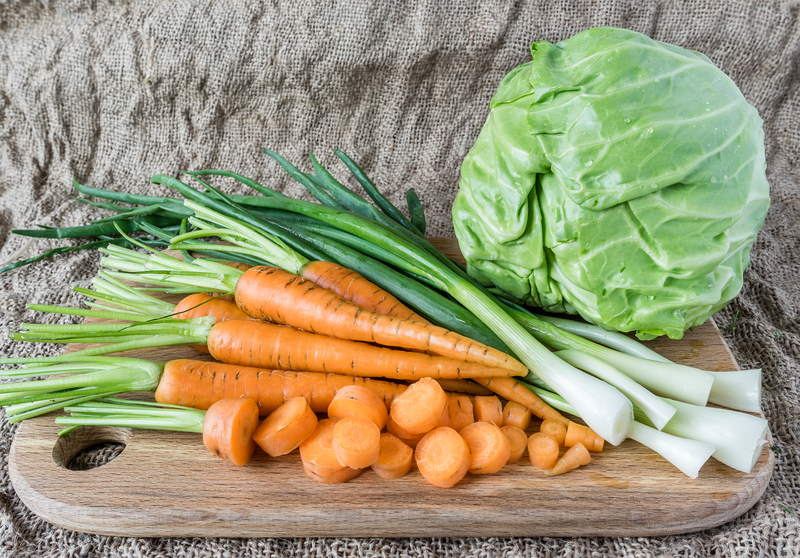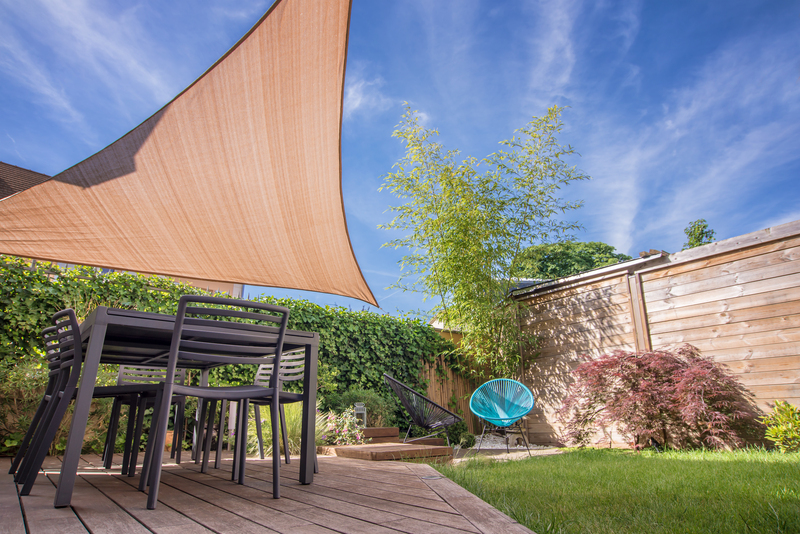Rooting for You: 9 Gardening Tips Every Beginner Should Know
Posted on 27/05/2025
Rooting for You: 9 Gardening Tips Every Beginner Should Know
Starting your gardening journey can feel overwhelming, but rest assured, every seasoned plant enthusiast was once a novice. With so many gardening tips for beginners floating around, knowing where to start is often the hardest part. In this comprehensive guide, we'll reveal the essential advice that will help you nurture healthy plants, cultivate a thriving garden, and grow your green thumb--all while cheering you on every step of the way! Rooting for You isn't just a clever play on words; it's a promise that you're not alone in this adventure.
Understanding the Basics: Why Gardening is Good for You
Whether you have a sprawling backyard or a tiny apartment balcony, gardening offers countless benefits. Nurturing plants can:
- Improve your mental and physical wellbeing
- Offer fresh, home-grown produce
- Enhance your living space's beauty and value
- Connect you with nature
- Encourage eco-friendly habits and sustainability
Beginner gardeners often discover that caring for plants is an exercise in patience, responsibility, and joy. If you're ready to embrace this rewarding pastime, let's dig into nine essential gardening tips every beginner should know!

1. Start Small and Simple
Beginner tip #1: It's tempting to envision a lush, magazine-worthy garden right from the start, but the best advice is to start small. Pick a manageable section of your yard, a few containers, or an indoor windowsill as your first gardening project.
- Why start small? Small-scale gardens are easier to manage, making them ideal for learning the basics of plant care and troubleshooting problems.
- Choose easy plants: Marigolds, lettuce, basil, and succulents are forgiving options that thrive under varied conditions.
Remember: You can always expand as you gain confidence and experience!
2. Understand Your Garden Space
Every plot, pot, or balcony comes with its unique set of conditions. Assessing your growing space is one of the most important gardening tips for novices:
- Sunlight: Track how many hours of sun each spot gets daily--most vegetables and flowers need at least 6 hours of direct sun.
- Soil quality: Good gardening begins with good soil. Test your soil's texture and pH, or use a quality commercial potting mix for containers.
- Access to water: Ensure you can conveniently water your plants--consistency is key!
Laying the right foundation helps your beginner garden thrive.
3. Choose the Right Plants
One of the top gardening tips for beginners is to choose plants that suit your environment and skill level. Consider climate (check your USDA Plant Hardiness Zone if you're in the USA), available sunlight, and your schedule.
- Check plant tags or seed packets for care instructions (light, space, water needs, and harvest times).
- Select low-maintenance varieties like zinnias, radishes, or herbs (mint, chives, parsley).
- If limited on space, look at compact or container-friendly options.
Don't overwhelm yourself with too many different types--grow what excites you!
4. Pay Attention to Soil Health
Soil is the foundation of any garden. Healthy, nutrient-rich soil helps plants establish strong roots and resist pests and diseases. Follow these beginner gardening tips for better soil:
- Loosen soil prior to planting to improve aeration and drainage.
- Add compost or organic matter regularly--this boosts fertility and beneficial microbes.
- Use mulch to retain moisture, suppress weeds, and moderate soil temperatures.
- Consider a soil test kit to check pH and nutrient levels, particularly for vegetable gardening.
Nourish your soil, and your garden will flourish!
5. Water Wisely
Watering is often the trickiest part for new gardeners. Many plants struggle from too much or too little water. Here's how to get it right:
- Water deeply but less frequently to encourage deep root growth (about once a week for most plants).
- Morning watering is best--reducing evaporation and allowing leaves to dry, which can prevent disease.
- Check the soil: Insert your finger or a wooden stick down a few inches--if it feels dry, it's time to water.
- Use soaker hoses or watering cans for more targeted hydration, especially in dense garden beds.
With time, you'll learn to notice plant signals like wilted leaves or dry soil that indicate when to water. Consistent care is key for every beginner gardener.
6. Monitor for Pests and Diseases
A healthy, well-maintained garden is less susceptible to unwelcome pests or plant diseases, but surprises can happen. Stay vigilant with these tips:
- Inspect your plants regularly--look for holes, discolored leaves, webbing, or stunted growth.
- Encourage beneficial insects like ladybugs, which feast on common pests.
- Remove weeds, fallen leaves, or debris that can harbor disease or harmful bugs.
- Act early: Hand-pick pests or use organic solutions like neem oil or insecticidal soap at the first sign of trouble.
Remember, not every bug is bad! Some, like bees and butterflies, are essential pollinators for a flourishing garden.
7. Feed and Fertilize Properly
Even the best soil needs a nutritional boost now and then. Here's how beginner gardeners can ensure steady, healthy growth:
- Start with compost--homemade or store-bought compost is a sustainable, all-purpose fertilizer.
- Use organic or slow-release fertilizers as needed, following the instructions to avoid over-feeding.
- Pay special attention to feeding vegetables and flowering plants, which demand more nutrients.
- Don't forget your container plants--they require regular feeding since nutrients wash out with frequent watering.
Healthy plants resist disease and yield better blooms and harvests--feeding them keeps your beginner garden productive and beautiful.
8. Prune and Deadhead with Care
Proper pruning is an essential part of gardening success. While it can seem intimidating, it's one of the most important gardening tips every beginner should know!
- Prune for plant health--remove dead, damaged, or diseased stems promptly.
- Deadhead flowers (snip off fading blooms) to encourage more flowering and prevent unwanted reseeding.
- Shape shrubs and perennials in late winter or early spring, following guidelines for each plant type.
- Use clean, sharp tools to avoid spreading disease or injuring plants.
Regular grooming keeps your garden looking neat and promotes stronger, healthier plants!
9. Celebrate, Experiment, & Learn from Mistakes
Gardening is as much about the joy of the journey as it is about the end result. Every new gardener will encounter both success and setbacks along the way. Here's how to make the most of your experience:
- Document your progress: Take notes, photos, or keep a garden journal.
- Experiment with new plants, layouts, or techniques every season--gardening is a lifelong learning process.
- Don't let mistakes discourage you--even the most experienced gardeners lose a plant or two now and then.
- Share your successes (and failures) with friends or online gardening communities for support and advice.
- Most importantly, enjoy your time outdoors and celebrate every new sprout, bloom, and harvest!

Bonus Beginner Gardening Tips
- Label your plants--you'll avoid confusion as your garden grows.
- Rotate plant locations each year to promote soil health and reduce disease risk.
- Be patient--gardens develop over time. Don't rush results.
- Keep tools clean, sharp, and organized for easiest maintenance.
- Observe the seasons and local wildlife--nature is the best teacher for any beginner gardener.
Conclusion: Growing Your Green Thumb
Rooting for you doesn't just mean cheering you on--it means providing the knowledge and encouragement you need to succeed. With these nine foundational gardening tips for beginners, you're set to transform your space and enjoy the countless rewards that come from connecting with plants. Gardening is a journey rooted in curiosity, patience, and constant discovery. Dig in, stay curious, and watch your confidence--and your garden--blossom!
Ready to learn more? Subscribe to our newsletter or follow us on social media for weekly gardening tips, DIY projects, and inspiration. And remember--whether it's your first seedling or your hundredth harvest, we're rooting for you every step of the way!



